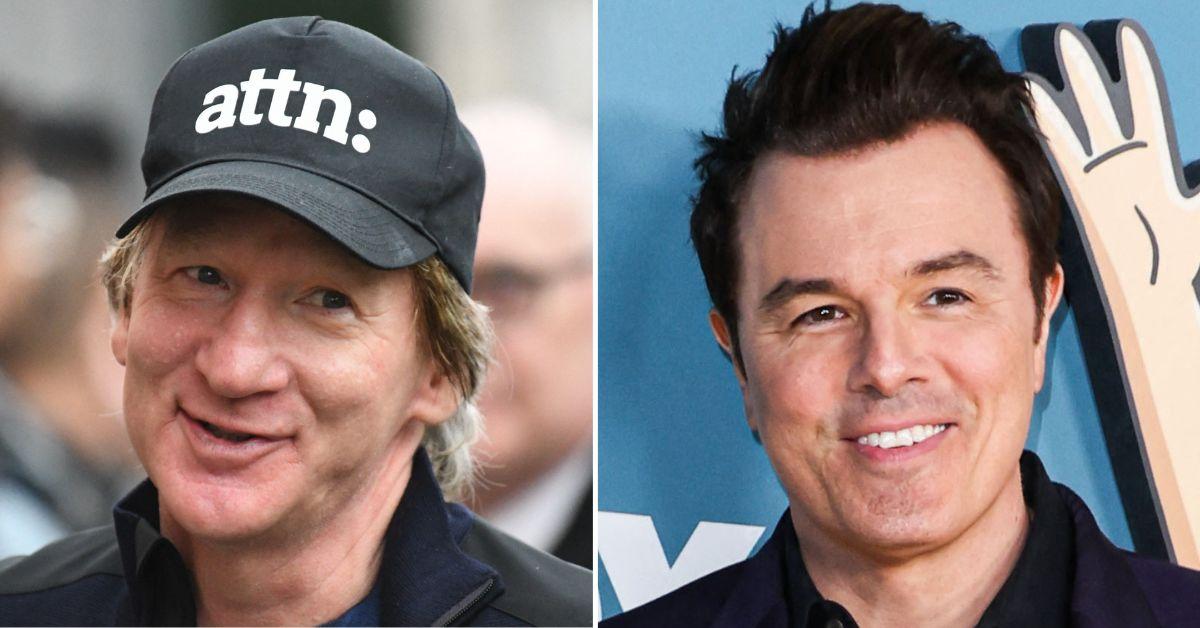Sorry, can’t find any better sources for this.
The animator then asked Maher what the “downside” of “getting a vaccine” was, which caused the comedian to go on an anti-vax tirade.
“The fact that you the fact that you don’t even have a clue what’s the cost of getting a vaccine that you don’t know the answer to that. You completely want to shut your eyes to the fact that there are repercussions to all medical interventions, including a vaccine, all vaccines,” he ranted. “They come, they say side effects, just like every medication does. You can see it in the literature. They can’t write it on their back on the vaccine. So you have to dig them. And of course, there is a vaccine court because so many people have been injured.”



Self solving problems are the best problems.
The problem is that there’s people who have been vaccinated who aren’t getting care because of the influx of idiots
I would also add that there’s a cohort of the population who vaccines may not work on (hi, immunocompromised). Their protection relies on everyone around them getting vaccines to prevent the disease exposure in the first place.
Actions have consequences, and as we live in an interconnected society, sometimes your actions have consequences for others. Being an adult partially means taking responsibility and owning your part in the system.
That’s a strategy that’s used in IT all the time.
Like… We don’t talk about that. Rule #1
Rule 1 is “the user always lies.”
Well, most people just say, “Trust, but verify,” but that’s just semantics.
Vaccines are great for young people with strong immune systems. They are significantly less effective for the elderly and newborns and the immuno-compromised.
So if you get a nice thick herd immunity of healthy people surrounding the immune-weak, you can avoid sudden rampant disease spread into - say - retirement homes or daycares, which spike the incidence of illness for everyone. Also, keeping rates of spread low reduces the incidence of mutation and the chance for a given virus to evade the current vaccination protocol.
This isn’t an individualist problem. Either we all immune together or we all get variants separately.
Less effective for the elderly compared to what? Staying unvaccinated? With diseases like COVID and flu the elderly are the group that should get vaccinated over nearly every other group.
"The data suggests that boosters and updated vaccines are more important for older adults. " source
Children are the second most important vaccination group after the elderly. Children represent the “high transmission” category. source
Well sure, because vaccines work by educating the immune system. Without a functioning one, a vaccine isn’t going to help much, which is why the rest of us with otherwise healthy immune systems need to be vaccinated because they can’t.
That doesn’t work with highly mutagenic diseases because exposure to infection doesn’t produce long standing immunity.
Compared to their younger counterparts. Older people have weaker immune systems. So prepping the immune system against a virus isn’t as reliable. You can be vaxxed and still get sick. And even milder illnesses can have long-lasting effects.
Precisely because their immune systems are weaker. But at least as important as vaccinating the elderly is vaccinating the aid workers and family members in regular contact with them. An 8-year-old with the flu can absolutely deliver a death blow to an ailing vaccinated elderly relative. One of the leading causes of death in NYC, during the height of COVID, was sick nurses showing up for duty and passing the disease on to whole communities of elderly residents.
Because they’re messy bitches more likely to fail at basic hygenie.
Yes. Exactly.
Highly mutagenic diseases are harder to vaccinate against, which is why we have annual flu shots and multiple flu shot variants. Also, why we can’t vaccinate against the common cold.
Nevertheless, getting healthy people vaccinated when you can helps insulate people with weaker immune systems from coming into contact with the disease from the start, which improves the survival rate for everyone involved.
I think we are nearly in agreement with one another. Vaccination (of all kinds) is important for as many people as possible.
Absolutely. My concern is that it is often treated as an individualist problem (if you don’t want to get sick then getting vaccinated is your responsibility) when disease spread is a more complex problem (vaccines have variable effects by individuals and exposure risks rise as fewer people are vaccinated).
Vaccination cannot be left to personal conviction. It has to come as a form of general public policy. And, as a result, it has to be publicly researched, funded, and distributed, rather than left to the whims of individuals.